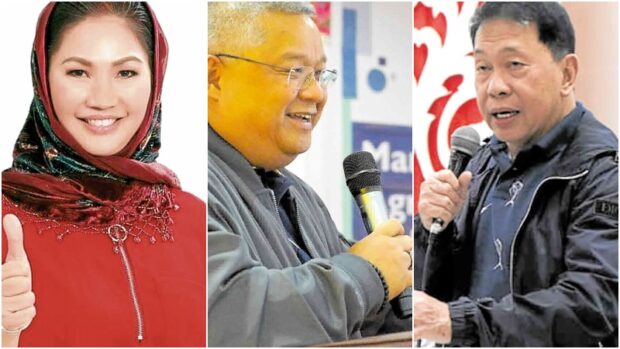3 provinces challenge BARMM governance code
COTABATO CITY—Three provincial governments in the Bangsamoro Autonomous Region in Muslim Mindanao (BARMM) have petitioned the Supreme Court to declare as “unconstitutional and invalid” the Bangsamoro Local Governance Code (BLGC), a landmark measure that attempts, among others, to curb political dynasties.
According to a news release of the BARMM Governors’ Caucus, the provincial governments of Sulu, Lanao del Sur and Maguindanao del Sur filed the petition on Monday, in accordance with resolutions of their respective provincial legislatures.
Sulu was represented in the petition by Gov. Abdusakur Tan, Lanao del Sur by Gov. Mamintal Adiong Jr., and Maguindanao del Sur by Gov. Bai Mariam Mangudadatu.
Joining them were the leagues of municipal mayors, councilors and barangay governments of the three provinces, represented in the suit by each bodies’ president.
READ: Opening up of BARMM to investments cheered
Tan, Adiong and Mangudadatu are convenors of the BARMM Governors’ Caucus that has evolved to be a counterforce to the current political dominance of the alliance of the Moro Islamic Liberation Front (MILF) and the Moro National Liberation Front (MNLF) in the interim regional government.
The MNLF and MILF have signed peace pacts with the government, in 1996 and 2014, respectively. The peace deal with the MILF led to the creation of BARMM in 2019.
Their petition claims that the BLGC is riddled with provisions that violate the Constitution, the country’s Local Government Code and the Bangsamoro Organic Law, including the laws on disciplining elected officials.
They argued that any provision in the BLGC that diminishes the rights and privileges of local governments under the Local Government Code and other national laws, is invalid.
Adiong was cited in the news release as saying that the petition seeks “to clarify the boundaries of power of the national, regional and local governments in the region.”
Authority issue
The BLGC is contained in the Bangsamoro Autonomy Act No. 49 which was passed in September last year. It was signed into law by BARMM Chief Minister Ahod “Al Haj Murad” Ebrahim and became effective upon publication on Dec. 26, 2023.
Hence, the petitioners asked the high court “for the immediate issuance of a status quo ante order, temporary restraining order and/or writ of preliminary injunction to stop the implementation of the BLGC.”
Mainly, the BLGC defines the relations between the regional government and its constituent local government units, giving the Chief Minister disciplining authority over local executives.
The petitioners questioned the disciplining authority of the BARMM chief minister, arguing that only the President is vested with the power of supervision over local governments.
Also, the petitioners questioned the power granted to the Chief Minister to appoint holders of vacant elective positions in the local governments, arguing that such authority also rests with the Philippine President.
The petitioners also took issue with the antidynasty provisions of the BLGC saying it is only the Congress that can do so. They argued that the BLGC is only “a subordinate law to the Local Government Code” hence cannot amend the latter’s provisions setting the qualifications of local elective officials.
The BLGC ensures a gradual devolution of authority to ensure a deliberate transfer of power as well as technical and financial capability at the local government level, mandating the Bangsamoro government to provide support to raise the capacity of local governments to make the necessary services available to the people.
Tax shares
To support this devolution of powers, the BLGC mandates sharing the regional government’s fiscal resources with local governments. Under the Code, constituent local government units shall receive 40 percent of the share of the Bangsamoro government in the national taxes, fees and charges collected in the Bangsamoro territorial jurisdiction.
Also, 70 percent of the share of the Bangsamoro government in revenues from exploration, development and utilization of natural resources shall be apportioned to its constituent local government units, giving premium to the host locality. INQ
